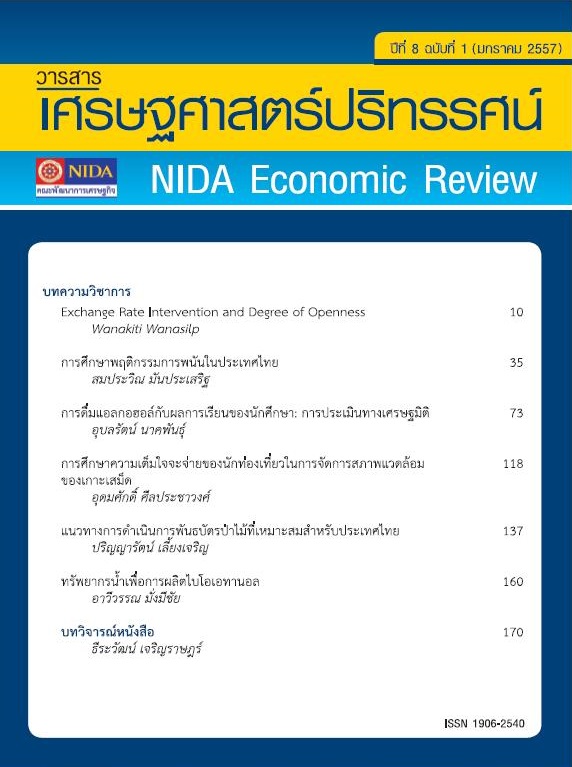The Study of Gambling Behavior in Thailand
Keywords:
Gambling, Addicted Goods, Rational Addiction Behavior, ThailandAbstract
The objective of this study is to quantitatively examine gambling behavior and its
influencing factors in Thailand. Motivated by addictive consumption theory, we
analyzed determinants that affect both new comers’ gambling experience and
existing gamblers. Important results suggest that gambling in Thailand is ‘addictive
good’, where pleasure from gambling activities has important role determining
status of participants. On average, Thai gamblers are risk-averse and aware of
their addictive behaviors. These findings in fact imply that Thai gamblers possess
‘rational addiction’ behavior. In other words, they rationally make decision to
consume gambling services by comparing private cost and expected utility
receiving from such activities. The study also points out that ‘peer effects’ are also
very important. Number of friends and people within family who gamble has
significant impact on the rest of the member. Policy implication drawn from the
study suggests the importance of young male group who has higher potential to
become new players. A person facing hardship from family problem tends to more
fragile to the gambling. Most importantly, family members have significant role
influencing the others to become ‘new players’. Therefore, the campaign should
not be specific but to target general public in order to help alleviating negative
externalities in gambling behavior. To reduce gambling in current players, the
results suggest higher private cost should be place more on gambling activities –
such as higher penalty and stronger enforcement.
Downloads
Published
Issue
Section
License
Copyright to published manuscripts becomes the property of the Graduate School of Development Economics, National Institute of Development Administration. Reproduction of all or part of a Development Economic Review (DER) article by anyone, excluding author(s), is prohibited, unless receiving our permission.
Disclaimer: Opinions expressed in articles published in this journal are those of the author (s) and do nto necessarily represent opinions of the Graduate School of Development Economics, National Institute of Development Administration. Trade and proprietary names are only for identification and not constitute our endorsement.


